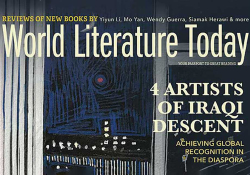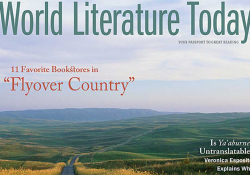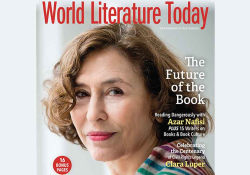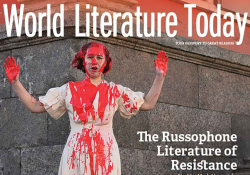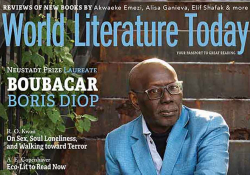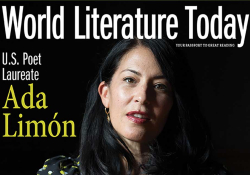Editor’s Note
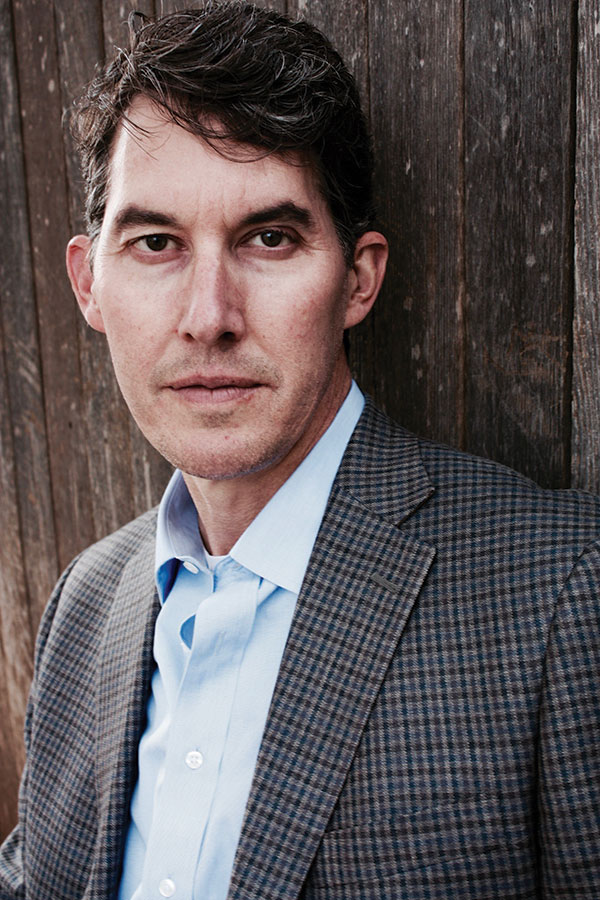
. . . like a premonition of eternity. – Xavier Bordes
M
ost writers and—by extension—artists take the brute facts of existence as a starting point, then fashion their work with varying degrees of realism admixed with imagination and the raw materials available to their craft. Still, poets, playwrights, and novelists, whose palette is language, are often seen as both of yet slightly outside the daily world the majority of humanity inhabits. In “The Anatomy of Lostness,” the marquee essay in the current issue of WLT, Anna Badkhen writes: “In the eye of most townsfolk an artist is already necessarily deranged, wild, rootless, one whose mind wanders—a griot who for her otherness will be buried not in a proper cemetery but inside a tree” (page 40). That apartness, for most artists, provides the necessary distance from reality in order to better fathom or transform it. Badkhen, who was born in the former Soviet Union and then left Russia in her twenties, mulls her own sense of lostness and transience against the larger arcs of time and in the face of entire populations disappearing, from the genocide of the native Guanches on the island of Tenerife in the fifteenth century to the thousands of unaccompanied migrant children that have gone missing in Europe or been separated along the US–Mexico border.
That sense of displacement and disorientation—what the French call dépaysement, which has the original sense of losing one’s country—also pervades the Illness & Literature section that begins on page 46. Expatriate Iranian writer Goli Taraghi sets her story “The First Day” in a psychiatric clinic on the outskirts of Paris. As the clinic staff injects the unnamed narrator with tranquilizers, her dreamlike narration shifts back and forth between recollections of growing up in Shemiran, a seemingly Edenic suburb of Tehran, and her experience of confinement in France. Many of the narrator’s memories—being locked in a “dungeon” at her school, remembering a santur player who hangs himself, witnessing “crazy” Yazdan tied up to a tree during a backyard picnic—cast ominous shadows from the past, but a key scene with a “magic inkpot” in her father’s office foreshadows the day in Paris when, given pencils and blank sheets of paper, she will be able to write her way toward a cure.
Michael Mattes, who contributes the hauntingly beautiful short story “Closer to Where You Will Find Him,” focuses on the estrangements of those who gather around a family member dying of cancer in a hospital room. Paula, the patient, is already unconscious, adrift on the “opiate seas” of hospice care. Her estranged brother, the narrator, arrives at Paula’s bedside to confront the “indivisible prime” of death, an “invention with its own effect and its own observances.” He then describes a pageant of other characters: the mother, who has already “ushered out a husband, a brother, parents and parents-in-law, aunts and uncles and cousins, countless friends, and soon a child”; the other siblings who will not make it in time; the doctor; the rabbi; the “him” of the title, ostensibly Paula’s father but perhaps also God (“a taker, it seems, if he is anything at all”).
While driving along Interstate 10 in West Texas, Badkhen encounters a whiteout thunderstorm that forces her to pull her car to the side of the road. “Seeing beauty amidst iniquity seems a tall order,” she writes, “but I insist we must—otherwise we will not survive our own history of violence, we will stop falling in love and die off as a species.” In a universe that stubbornly confronts us with the precarity of our survival, we nevertheless seek arcs of transcendence in the dogged hope that life, in the end, will not be meaningless—and that art, perhaps, might offer some measure of redemption.
Daniel Simon

